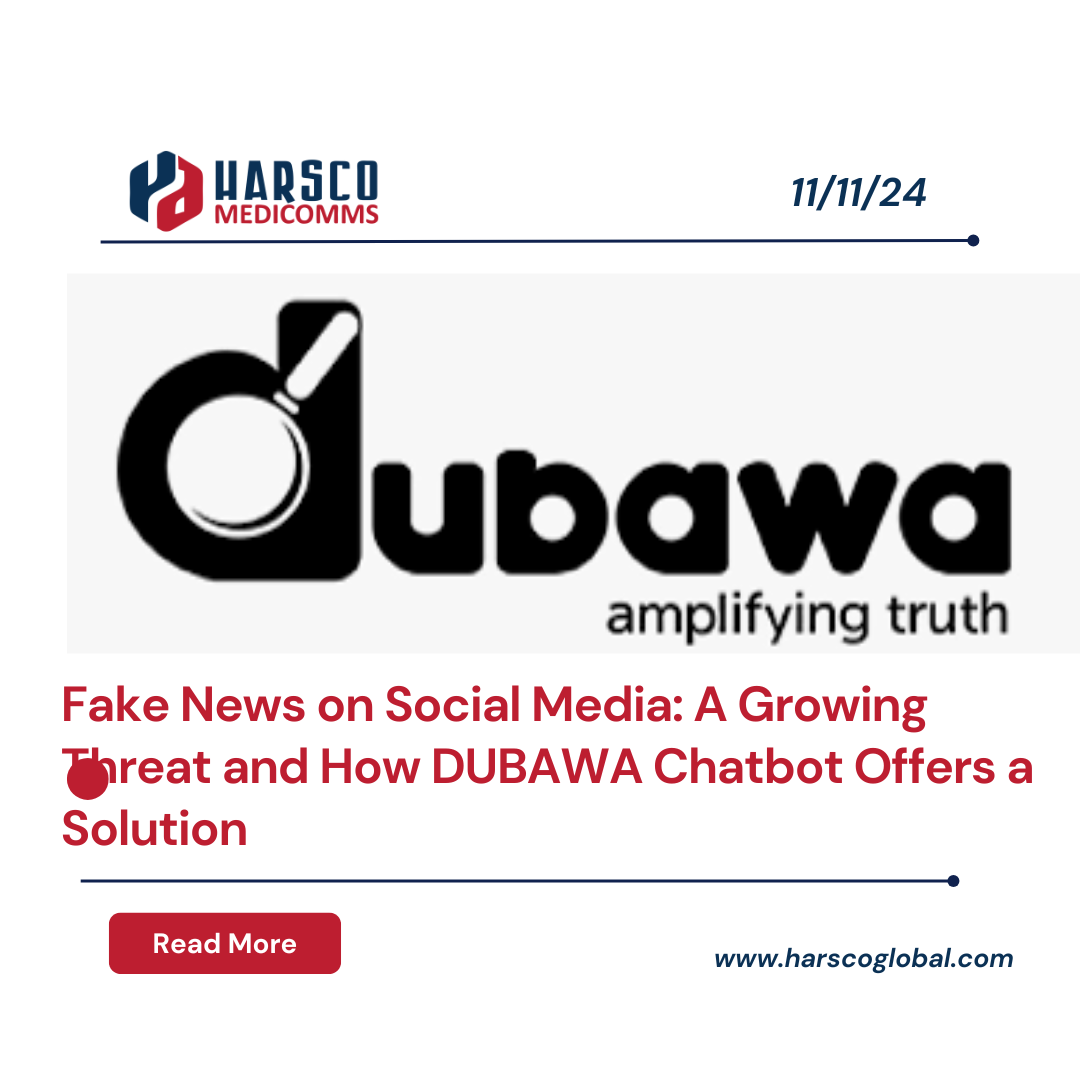By Harriet C. Ijeomah
In a digital era dominated by rapid information sharing, fake news has found fertile ground, especially on platforms like WhatsApp, Facebook, and Telegram. The unchecked spread of unverified information on these platforms has led to confusion, fear, and even violence, creating serious societal harm. As misinformation surges, particularly on closed platforms, the DUBAWA Chatbot has emerged as a timely and essential tool in the fight to verify facts and curb the spread of falsehoods.
Recent data reveals a troubling picture. A 2023 survey by Nigeria’s National Centre for Information and Communication found that more than 60% of Nigerians had encountered misinformation on WhatsApp in the past six months, while nearly 40% of Facebook users reported seeing unverified news daily. This widespread exposure to misinformation has led to real-life consequences, from public panic over health scares to increased political tensions.
Take, for example, a recent incident in Nigeria where a false message circulated on WhatsApp warned of a mysterious virus spreading through specific brands of bottled water. The message went viral in a matter of hours, reaching thousands who forwarded it to family and friends without any form of verification. The result? A wave of unnecessary panic, with citizens rushing to discard water bottles, while public health offices were flooded with calls from anxious individuals seeking guidance.
Then, during the last election period, another misinformation wave swept through, with claims that a political candidate had withdrawn from the race. The fake news spread like wildfire across Facebook groups, creating chaos at polling stations and sparking public outrage based on false information. These are just two examples among countless others, demonstrating how fake news can manipulate emotions, sway public opinion, and even disrupt communities.
In response to this rising threat, the DUBAWA Chatbot—a fact-checking tool created by DUBAWA, the verification arm of the Centre for Journalism Innovation and Development (CJID)—has stepped up as a powerful line of defense. Operating directly on WhatsApp, DUBAWA’s Chatbot empowers individuals to verify information in real-time. With user-friendly key question prompts, it allows users to check the validity of claims they encounter, making it particularly useful on closed networks where misinformation often thrives unseen.
The chatbot’s design is purpose-built for accessibility and ease of use, bridging the gap between verified information and the general public. This approach tackles one of the biggest hurdles in fact-checking today: reaching audiences who don’t always have access to traditional fact-checking websites or channels. By offering quick verification directly within WhatsApp, the chatbot offers a solution tailored to a region where WhatsApp is the most-used social media platform.
With DUBAWA Chatbot, users can now quickly verify claims about health, politics, safety, and other pressing issues, helping them distinguish fact from fiction before sharing information. It’s as simple as sending a question or a claim to the chatbot, which responds with verified insights or directs users to reliable fact-checked resources. This level of accessibility and immediacy is critical in stopping the spread of misinformation before it reaches wider audiences.
As the scourge of fake news continues to challenge Nigeria and countries across Africa, tools like DUBAWA Chatbot are essential. They not only offer individuals a way to verify what they read but also promote a culture of accountability in information sharing. Now, more than ever, citizens are urged to make fact-checking a habit, pausing to verify information before sharing it with others. With DUBAWA Chatbot just a message away, the power to fight fake news is truly in our hands.





